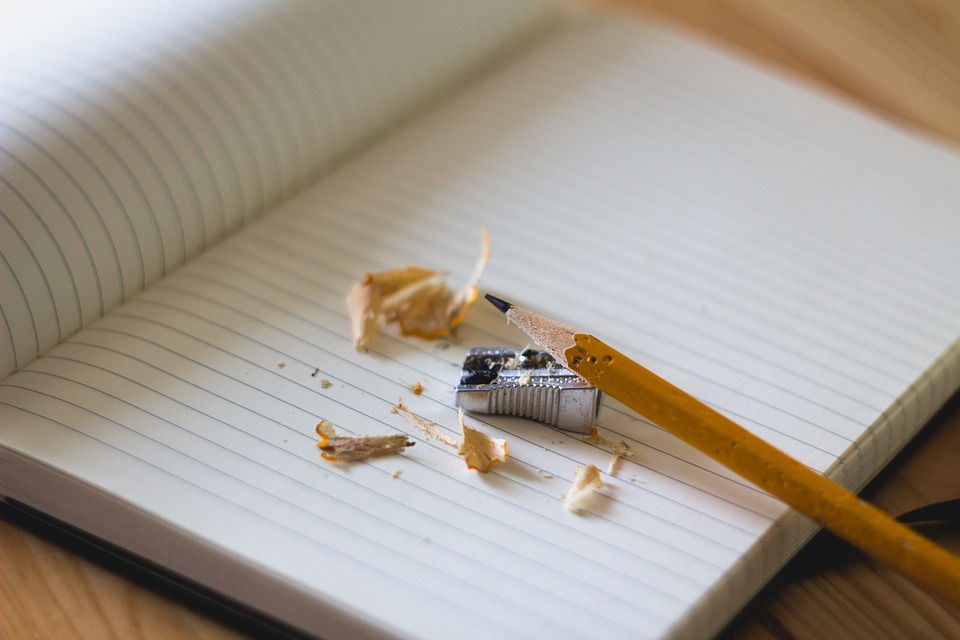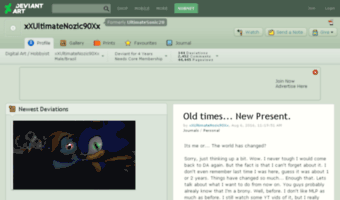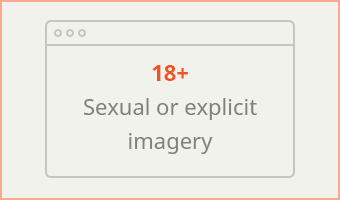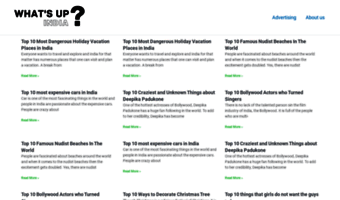“Creative people do a lot of trial and error and rarely know where they are going exactly until they get there.”
Scott Barry Kaufman
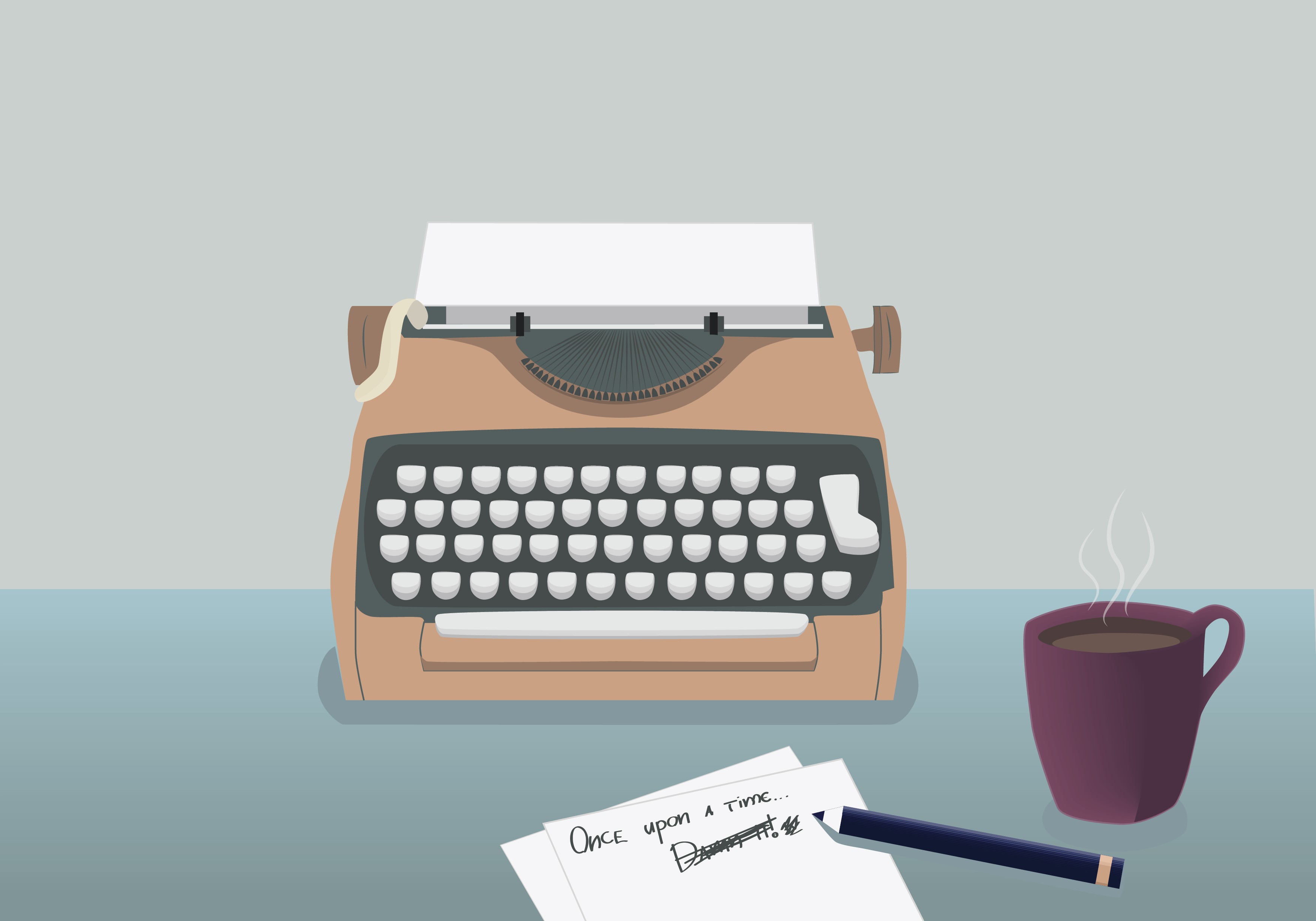
This one time we are going to tell you a story about a blocked writer. There lived a guy called Tom. He had a passion for writing and enjoyed all the pleasures of it till the very moment he was hit by this evil force usually known under the name of Writer’s Block. Tom has heard about it but never met the creature himself. He turned to historical mentions of the mysterious Block and found out that Block existed a long time before it was even given the name. It tortured poor writers and made them feel miserable and self-doubtful.
Once successful and productive they couldn’t write a word. “Oh my God, - poor Tom thought. The beast has come for me. What can I do now? Google help me!” Usually, it does. Tom was amazed how many techniques and strategies to beat Writer’s Block were invented. He read them one after another and started drowning in the letters H-O-W-T-O.
He started shaking in fear dreading that he would never ever write a word. Although, some Block beaters suggested to write any words that come to your mind to win the battle. So Tom finished the evening with five pages filled with word ‘words’ and nothing else. “Tomorrow is another day”, he thought and went to bed. He was having bad dreams struggling with unbeatable Writer’s Block all night long.
Tom’s story is typical for many of those whose work involves writing (it doesn't matter whether you write a serious novel, school essay, or a short post for your blog). Coleridge, Joseph Mitchell, Mark Twain, and many more famous writers, poets and journalists had to face writer’s block (you may also call it a creative slowdown or burnout) and some of them just couldn't find the way out. Were they not talented enough or persistent enough, what are the reasons for creative block and does it exist at all? Maybe all these writers, bloggers or journalists were kind of lazy or untalented?
That’s what we are going to find out in this article.
A brief history of blockage
Approximately since the Age of the Enlightenment, literacy began to spread wider, and so did the writer’s block (writing was no longer an occupation of a limited circle of scholars and clergy).
Before the early nineteenth century, writing was mostly considered as an instrument of a rational, moralistic or naturalistic research (for example, French Encyclopédistes who wanted to describe literally everything in the World). With Romanticism came another generation of writers who preferred focusing on their inner emotional or imaginary experience: from that moment the writing process involved magic and an author demanded a muse for inspiration.
Due to the increasing popularity of French symbolism in the beginning of the nineteenth century, the writer’s image was that of a deep, clever but miserable person. Arthur Rimbaud is one of the most famous and tragic depictions of the said lifestyle.
“The idea is to reach the unknown by the derangement of all the senses. It involves enormous suffering, but one must be strong and be a born poet. And I’ve realized that I am a poet. It’s really not my fault.”
He wrote most of his revolutionary poems between the age of sixteen and twenty and gave up poetry to become a trader (it’s hard to say why, but allegedly it might have been because of a lasting writer's block). Rimbaud did a lot of things that were considered inappropriate those days. The young man was involved in a relationship with a married poet Paul Verlaine, he showed little or no respect towards his confreres and even bullied them publicly, drank a lot and smoked weed trying to find inspiration. When he was nearly twenty Rimbaud gave up his old habits, broke up with Verlaine and stopped writing. He died of bone cancer when he was thirty seven, a successful tradesman and a former rebellious poet.
Productive writers were perceived as shallow, although the nineteenth century gave the world plenty of masterpieces written by successful authors who had their very own recipes to rebuff the writer's block (Hugo, Trollope and many others). Trollope wrote in his autobiography: “Let their work be to them as is his common work to the common laborer.” He woke up every day to write strictly between 5.30 and 8.30 am and then went to his job at postal service. This schedule helped him write forty-nine novels in thirty-five years. Victor Hugo had quite an extravagant approach towards procrastination: he asked his valet to hide all his clothes so that he would stay at home and write.
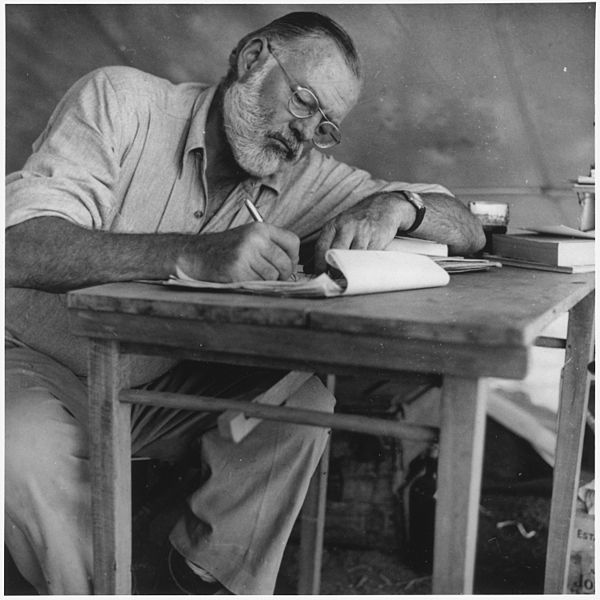
After The Second World War American authors were deeply interested in psychoanalysis. They were investigating human nature taking as an example their own lives. Constant dealing with their past negative experience, or poetically speaking, fighting their inner demons led them to stress, burnout, and later to neuroticism and addictions. Scott Fitzgerald, Ernest Hemingway, and William Faulkner were among the famous after-war writers suffering from both alcoholism and writer’s block. According to W.Barrett, the modern writer was by definition an "estranged neurotic". No wonder psychologists found these cases interesting for their future studies.
The term itself was first introduced by a psychologist Edmund Bergler in 1950s. He conducted a research called “Does Writer’s Block Exist?” and found out that people experiencing writer's block were actually blocked psychologically and needed therapy to “unblock”.
According to Jerome Singer and Michael Barrios who conducted their research in the 1970s, all blocked writers were unhappy. They experienced depression, anxiety, increased self-criticism and reduced excitement and pride at work. They also showed signs of obsessive-compulsive disorder such as repetition, self-doubt, procrastination, and perfectionism. They felt helpless and isolated. What interests us most, the psychologists found out that all blocked writers were blocked for different reasons and to a different degree thus should have been treated differently according to their specific needs.
The literary trends keep changing and so does the attitude to the writer’s block. Today scientists focus on brain chemistry and biological theories while psychologists rely on cognitive-behavioral therapy to remove fear of fail, disavowal or criticism. So we move on to find out how to identify our specific needs and stop procrastinating.
What makes you blocked and how to unblock?
Everyone wants to do something with their life, and we don't all get the opportunity because shit gets in the way.
Now that we know that unhappy writers are unhappy in a variety of ways, it is vital to identify the causes of writer’s block and find the one that stands between you and the pleasure of being a prolific author. When you understand the core problem it is much easier to fight the monster. One may feel a bit distressed by the amount of advice jumping out of the numerous articles and we still don’t have a sole solution to the problem because it simply does not exist.
Perfect Draft Syndrome
One of the most popular causes of writer’s block is chaos in the prewriting stage also known as 'perfect draft syndrome'. Creative thoughts and ideas may overwhelm you mixing with everyday problems and routine tasks, so you just can’t work it all out.
Consider free writing: put everything that comes to your mind on paper or in the doc without trying to control the stream of consciousness - just type/write it down. Drafts don’t have to be perfect, so don’t pay attention to misprints and mistakes at all at this stage - you can do it later on. This applies to structure as well. You just need to set your mind free from all of the thoughts struggling to come out of you.
Fear of taking a risk
Inexperienced authors often are anxious of revealing themselves and afraid that it might be too hard to get over public rejection. You know that it's OK because we all are human beings, we are afraid of numerous things like spiders, snakes or even hedgehogs, not to mention heights or depth that you may show or not show in your work.
Adress your writing to somebody who will surely accept you (it can be even an imaginary friend), you can start with words “Dear, [Friend], …” and continue your narration with comfort. You can actually show your work to the said person later and ask for advice if needed. You need to come through failures and mistakes, as they are a part of learning.

Previous success aka Second Novel Syndrome
Fear of being judged is natural, as Elizabeth Gilbert, the author of bestseller ‘Eat Pray Love’ stated in her speech: “Anything that I write from this point forward is going to be judged as the work that came after the freakish success of my last book.”
It is terrifying. Today you are successful writer or blogger, and tomorrow you just have to be even more successful and talented. God, it’s a heavy burden! Harper Lee hadn’t written anything after her magnificent ‘To Kill a Mockingbird’. Not a story. This is sad that the pressure of being judged makes talented people who love their job stop. So you don’t have to. It is extremely likely you won’t get as much attention or positive reviews as you got before, because that’s how it generally works.
Remember why you are into writing. That’s because you are talented, that’s because you love writing, it is your choice and it has little to do with other people's opinions in fact. You need to stop associating yourself with social acceptance and start writing for the sake of writing. Remember that Modernists refused to address their art to the audience's basic needs so you can follow their footsteps.
Judging vs. generating ideas
Common problem that originates from extreme self-criticism, is when an author can’t move on with writing being stuck with editing and criticising their own text for being unoriginal or dull. Don’t judge yourself too much. Be yourself, don't try to sound smart or pretentious.
Don’t strive to be original either. There is nothing new under the sun, remember that? Being yourself is the hardest task of all but it’s a sole way to originality. Reread your best posts to return to yourself, and leave the tasks of editing and polishing for the final part of your writing process, so it cannot interfere with your initial ideas.
Inability to incubate ideas, lack of inspiration
Writing as any other creative process is nonlinear, and sometimes one can’t understand where had all their previous ideas come from. Like the ancient Greeks or new age Romantics you suffer and wait for the muse to come. Sometimes, your imagination needs to be recharged: consider brainstorming and thought-provoking exercises (for example, imagine an interview with a great writer of your choice, and ask him/her for opinion, what would they start with?). Changing the environment or switching activity might work as well: do some house work, go to a bookstore, go out to sketch, take a long walk or travel.
Change your writing place or tools: switch from a pen and paper to a tablet or typewriter (or vice versa), change background color or font in your text editor. Take inspiration from movies and books, visit museums or exhibitions, read your favourite poems aloud, go to the theatre, - your creativity needs some outer sources to be nourished.
WRITER'S BLOCK - A Supercut from Ben Watts.
Unrealistic demands and perfectionism
Perfectionism leads to impossible writing goals, so your goals should be realistic and reachable and tasks should be manageable. You can search for the perfect solution for years, so take the first reasonable one. Life is imperfect so why on earth should your opus embody an unattainable level of perfection?
The absence of agreed writing time. Procrastination
For people tired of monotony and routineness, a bit of chaos can be just what doctor ordered, but most of us are not really disciplined. Reading Stephen King’s novels one can’t say he’s a bore by any means, but he advises to write every day at a fixed time no matter what. Although that’s easier said than done, the results of scheduled writing may greatly impress you.
Remove all distractions, switch off your devices and prepare tools necessary for writing - get yourself comfortable and show up every day at the same time even if you’re afraid that the muse will come in the middle of the night. Here’s what Tom Waits did when the muse visited him while he was driving and couldn’t write anything down. He addressed the sky: "Excuse me, can you not see that I'm driving? Come back in a more appropriate moment. Go bother Leonard Cohen".
Isolation
Unfortunately, pop culture often depicts writers as mentally unstable people, alcoholics or drug addicts. Such myths along with other fears are overwhelming creative people and make them feel misunderstood and isolated. That’s why many writers generally don't like talking about their creative problems or their work with others, so they may become stressed out or even depressed. If you believe it’s your case, then you should try participating in social writing groups, it involves writing with others in the room so you will not be alone anymore. You may be interested in class and group discussions, which are useful not only for your work but for socializing as well. If you are afraid of new people, don’t be scared to request for help of your colleagues and close friends at first.
The pressure to produce work against natural inclination, lack of motivation
Often it takes efforts to write about some things you are not interested in or when you don’t feel creative, but it’s your job, you’ve got deadlines and you have to deal with it. Cheating works great: promise yourself freedom, for example, limit your writing time to 15 minutes or half an hour. In such a way you feel less pressure from the start, and thus it’s much easier to begin, but you may find yourself having been working for several hours later on. If the topic bores you to death, entertain yourself by doing weird but funny tasks, such as using particular words and phrases in each sentence or writing an article in a form of fairytale or horror story. (Actually, that’s how the introductory part of this article was created, although the topic is fascinating, it helped to get started quickly). Promise yourself a treat after part of the work is done: it may be your favorite food, a night out in the movie, or something else pleasant and easily manageable.
We call it magic: universal techniques for great writing
“Inspiration exists, but it has to find us working.”
Pablo Picasso
- Graham Greene kept a dream journal to overcome writer’s block. It helps writers get over internal and external judgment. Likewise, Morning pages dream diary helps to get rid of the fears of being judged or monitored. You can write everything you wish, all your joys and sorrows, your stream of consciousness doesn’t demand structure or grammatical correctness. You don’t have to show it to anybody, you just need to write regularly 3 pages a day. “Perhaps I shouldn't have been surprised at how powerful Morning Pages proved, from day one, at calming anxieties, producing insights and resolving dilemmas,” - Oliver Burkeman, a Guardian writer.
- Start in the middle of the sentence: “The best way is always to stop when you are going good and when you know what will happen next. If you do that every day … you will never be stuck. Always stop while you are going good and don’t think about it or worry about it until you start to write the next day. That way your subconscious will work on it all the time. But if you think about it consciously or worry about it, you will kill it and your brain will be tired before you start.” — Ernest Hemingway
- Writer’s cube by Kim Keeline
Side 1: Decide what you’re writing about.
Side 2: What does your theme have in common with others? What are the differences?
Side 3: What does it make you feel?
Side 4: Consider all aspects of the topic. What field is it in, what does it consist of and how does it function?
Side 5: How does your writing impact others? Is it valuable for them?
Side 6: Find out all the pros and cons. Why is your topic worth writing about?
